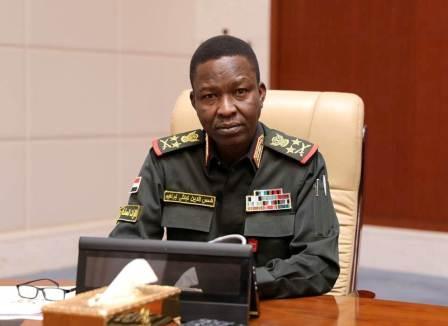Sudan’s military confirms to U.S. official keenness to hold comprehensive dialogue
January 6, 2022 (KHARTOUM) – Sudan’s military rulers are striving to hold comprehensive dialogue on the democratic transition before appointing a new prime minister, Lt-Gen Shams al-Din Kabbashi, Member of the Sovereign Council, told Molly Phee U.S. Assistant Secretary of State for African Affairs.
Phee spoke on Thursday with Kabbashi about the current political unrest in the country after the resignation of Hamdok, which is seen as an illustration of the army’s failure to find a civilian partner for a military-controlled transition.
In a statement after the call, the Sovereign Council said that American and Sudanese officials discussed the complexities of the current situation in Sudan, following Hamdok’s resignation.
Kabbashi extensively spoke “about the ongoing efforts to resolve (the political crisis) through a comprehensive dialogue between the political forces and other components, leading to a national consensus on remaining tasks of the transitional period,” said the statement.
He further said that these efforts should lead to agreement on the appropriate mechanism for selecting a new prime minister and forming a new cabinet as quickly as possible.
With the current political stalemate and the absence of a civil government, the coup leaders would have no choice but the full militarization of power in Sudan.
Such a move would mean continued regional and international isolation and the end of any hope to debt relief under the Heavily Indebted Poor Countries (HIPC) initiative. Also, it would lead to the continuation of political unrest and instability.
The U.S. Senior diplomat spoke two days ago with Mohamed Hamdan Daglo aka “Hemetti” Deputy Head of the Sovereign Council.
Hemetti, according to the Sovereign Council, stressed that initiating a comprehensive dialogue to achieve a national consensus is the exit of the current crisis.
The statement issued after the call added that Phee stressed U.S. keenness to coordinate with Sudan to ensure the success of the transition and the achievement of democratic reforms.
The Troika and the European Union countries on Tuesday called for a “Sudanese-led and internationally facilitated dialogue” to address the current crisis and other transitional issues.
Amani al-Taweel, an Egyptian expert on Sudan and researcher at the government’s Al-Ahram Center for Political and Strategic Studies on Thursday called on the Sudanese political forces to prepare an exit strategy for the military component and to propose it as a basis for talks with the army.
In an interview with Al-Jazeera TV, Al-Taweel added that the previous civilian-military partnership is no longer valid but the army should be involved in the next stage and reassured.
In an article on Tuesday in the Independent Arabia newpaper, she said that al-Burhan has to reconsider his ambition to rule Sudan and accept to dialogue with the political forces because Sudanese are no longer disposed to accept a military ruler after a 30-year of dictatorship by Omer al-Bashir.
On Tuesday, Phee spoke with former Foreign Minister Mariam al-Mahdi who is also Deputy Head of the National Umma Party (NUP) to discuss a roadmap her party proposed to settle the ongoing rift in Sudan.
“I briefed her on the road map proposed by the National Umma Party and the organisation of a round table conference with the participation of all Sudanese parties with the participation of the regional and international community as guarantors,” said Maram in a statement extended to the Sudan Tribune on Wednesday.
(ST)

